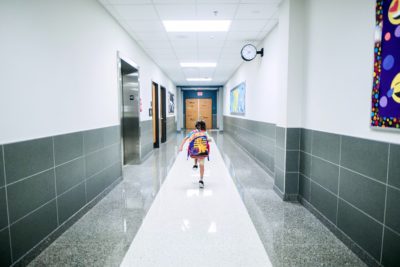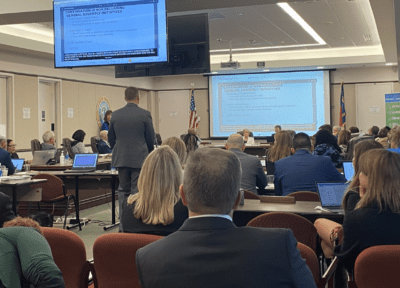
|
|
The State Board of Education wants the General Assembly to tweak current laws to allow a few local school districts to test a major shift in how public school teachers are licensed and paid. The request also poses a test for lawmakers to manage a complex issue and act in the long-term interests of its K-12 students.
It’s not uncommon — and prudence often dictates — that pilot projects precede far-reaching policy decisions. But pilots take time. Time to set up. Time to operate. Time to assess and learn lessons.
In the meantime, what now? Does North Carolina have to wait two, or more, years for pilots to proceed before legislators put teachers and principals on a trajectory toward being paid as the professionals they are?
In its state-by-state calculations for 2020-21, the National Center for Education Statistics puts the average salary of North Carolina public elementary and secondary school teachers at $54,392 — well below the national average of $65,090. What’s more, the NCES points to a two-decade erosion in teacher pay in North Carolina. In constant 2020-21 dollars used for comparison, NCES calculates that the average salary declined 7.1% from 1999-2000 to 2009-10 and fell 4.1% from 2009-10 to 2020-21.
State comparisons and rankings are less revealing than looking at teacher pay in relation to professional peers in business and government. The Economic Policy Institute (EPI), a liberal nonpartisan think-tank, calculates that North Carolina teachers earn 25% per week less than comparable college graduates — what it terms a “wage penalty.”
Stopping short of a specific pay recommendation, the state House Select Committee on an Education System for North Carolina’s Future makes an argument for continuing to raise educators’ salaries. In addition to expressing concern over maintaining safety and discipline in schools, its report says:
“The Committee recognizes the dedication and determination of educators throughout the State. The Committee finds that the State is having difficulty hiring and retaining qualified educators for every school. The Committee received testimony that increasing educator pay would alleviate some of this difficulty.”
Of course, North Carolina does not have an isolated marketplace for educators. In varying degrees, states and local districts across the nation face teacher “shortages” in filling positions in rural and low-wealth communities, in certain subject areas, and in special education.
EPI reports that the national “teacher wage penalty” hit a record high in 2021, and that the advantage teachers have in compensation through benefits did not offset the wage penalty. Speaking to another dimension of the issue, the American Association of Colleges for Teacher Education has reported a decline of more than a third in students completing traditional teacher education programs between 2008 and 2019 in the United States.
In North Carolina, according to the UNC System’s data website, undergraduate education majors dropped from 9,213 in 2011 to 6,041 in 2018. Students enrolled in education master’s programs declined from 6,947 to 4,836. The Department of Public Instruction reports that the number of students completing an education preparation program has risen slightly from 3,625 in 2015 to 3,748 in 2021.
North Carolina deserves a strong, informed debate, including the voices of teachers and principals, on the licensing-and-pay proposal, which emerged from a study commission with a narrow majority. But even as that debate and pilots take place, the need is now to change the conversations in homes and schools across the state.
College and high school students hear from parents and peers that they should focus on preparing for a paying job. Parental concern is not misplaced — but, however well meaning, it can divert young people from following their own ambition and passion, whether in education, journalism, the arts and humanities.
Putting North Carolina on a trajectory to pay educators as professionals is about producing a well-educated, high-quality teacher force. It’s also ultimately about investing in young people who detect in themselves a talent for teaching.
Recommended reading




